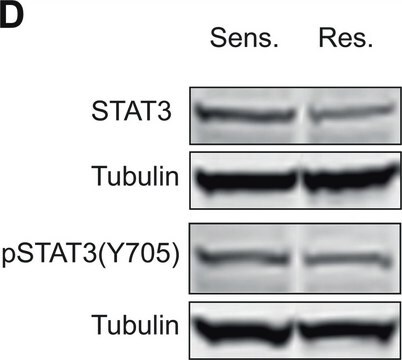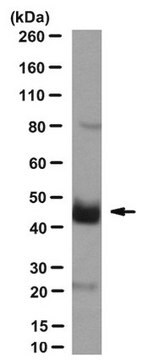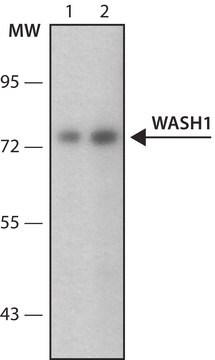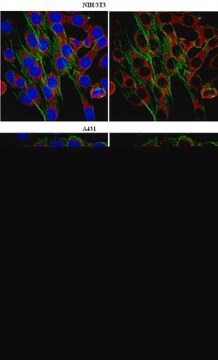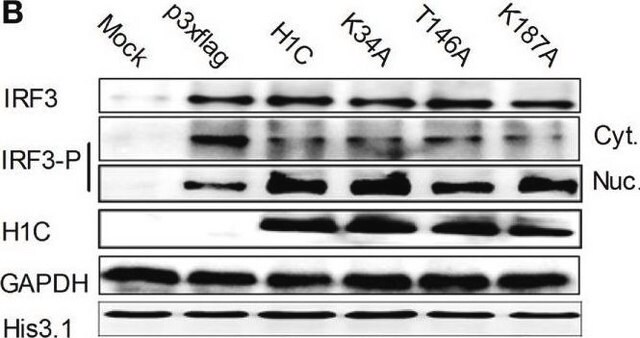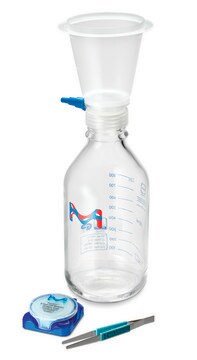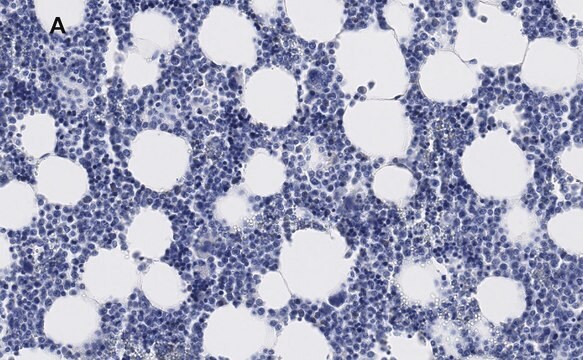SAB4200552
Anti-WASH1 antibody, Mouse monoclonal
clone WASH1-27, purified from hybridoma cell culture
Synonym(s):
Anti-CXYorf1-like protein on chromosome 9, Anti-FAM39E, Anti-WAS protein family homolog 1, Anti-WASH, Monoclonal Anti-WASH1 antibody produced in mouse
About This Item
Recommended Products
biological source
mouse
conjugate
unconjugated
antibody form
purified from hybridoma cell culture
antibody product type
primary antibodies
clone
WASH1-27, monoclonal
form
buffered aqueous solution
mol wt
antigen ~72 kDa
species reactivity
mouse, human
concentration
~1 mg/mL
technique(s)
immunoprecipitation (IP): 5-10 μg using lysates of human HeLa cells
western blot: 2.5-5.0 μg/mL using whole extracts of HEK-293T cells overexpressing mouse WASH1
isotype
IgG1
shipped in
dry ice
storage temp.
−20°C
target post-translational modification
unmodified
Gene Information
human ... WASH1(100287171)
General description
Immunogen
Application
Biochem/physiol Actions
Physical form
Disclaimer
Not finding the right product?
Try our Product Selector Tool.
Storage Class Code
10 - Combustible liquids
Flash Point(F)
Not applicable
Flash Point(C)
Not applicable
Certificates of Analysis (COA)
Search for Certificates of Analysis (COA) by entering the products Lot/Batch Number. Lot and Batch Numbers can be found on a product’s label following the words ‘Lot’ or ‘Batch’.
Already Own This Product?
Find documentation for the products that you have recently purchased in the Document Library.
Our team of scientists has experience in all areas of research including Life Science, Material Science, Chemical Synthesis, Chromatography, Analytical and many others.
Contact Technical Service